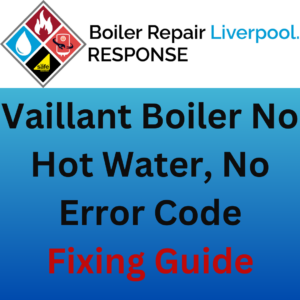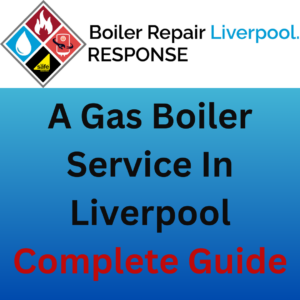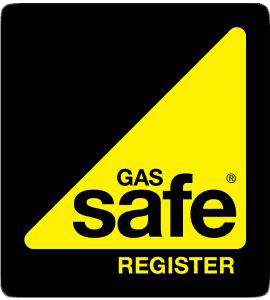Boilers are an essential part of many industrial processes and home heating systems. They are used to generate steam or hot water, which can be used for a variety of purposes, including heating, power generation, and manufacturing.
In this blog, we will define what a boiler is, discuss the different types of boilers, and explain how they work.
Table of Contents
ToggleWhat is a Boiler?
A boiler is a closed vessel that is used to heat water or other fluids. The heat produced by the combustion of fuels such as natural gas, oil, or coal is transferred to the water or fluid, producing steam or hot water.
Boilers are commonly used in power plants, industrial processes, and residential and commercial heating systems.
Different Types of Boilers
There are many different types of boilers, each with its own unique features and advantages. Some of the most common types of boilers include:
-
Vented System Boilers
Vented system boilers are a type of conventional boiler that require a water tank and a hot water cylinder to operate.
The water tank is usually located in the loft or attic, while the cylinder is typically found in an airing cupboard. Water is heated in the cylinder and then distributed throughout the house via a series of pipes and radiators.
-
Unvented Heating Boilers
Unvented heating boilers are similar to vented system boilers, but they do not require a water tank. Instead, the boiler heats water and stores it in a high-pressure cylinder, which provides hot water on demand.
Unvented heating boilers are typically more efficient than vented system boilers, but they can be more expensive to install.
-
Combination Boilers
Combination boilers, also known as combi boilers, are a type of high-efficiency boiler that provide both hot water and central heating in a single unit.
They do not require a water tank or cylinder and are typically more compact than other types of boilers. Combination boilers are a popular choice for small homes or apartments where space is at a premium.
-
Instantaneous Water Heaters
Instantaneous water heaters, also known as tankless water heaters, are a type of boiler that heats water on demand. They do not store hot water in a tank, but rather heat water as it passes through the unit.
Instantaneous water heaters are typically more energy-efficient than other types of boilers, but they may not be suitable for larger homes or buildings with high hot water demand.
-
Fire-Tube Boilers
Fire-tube boilers are the oldest and simplest type of boiler. They consist of a large, cylindrical shell with a firebox at one end and a flue at the other.
The heat produced by the combustion of fuel inside the firebox is transferred to the water in the shell, producing steam.
-
Water-Tube Boilers
Water-tube boilers are more complex than fire-tube boilers, but they are also more efficient. They consist of a series of tubes that are filled with water and heated by combustion gases that flow around them. The heat is transferred to the water in the tubes, producing steam.
-
Electric Boilers
Electric boilers use electricity to heat water or other fluids. They are generally smaller and less powerful than other types of boilers, but they are also more efficient and easier to install.
-
Biomass Boilers
Biomass boilers use organic materials such as wood chips, sawdust, or agricultural waste to generate heat. They are an environmentally friendly alternative to fossil fuel boilers.
-
Oil Boilers
Oil boilers use oil to heat water or other fluids. They are commonly used in homes and businesses that are not connected to natural gas lines.
-
Gas Boilers
Gas boilers use natural gas to heat water or other fluids. They are efficient and relatively clean-burning, making them a popular choice for residential and commercial heating systems.
Each of these types of boilers has its own unique features and benefits, and the right type of boiler for your needs will depend on factors such as the size of your home, your hot water needs, and your budget.
If you are considering installing a new boiler, be sure to consult with a qualified professional to determine which type of boiler is right for you.
How Boilers Work
Boilers work by heating water or other fluids to produce steam or hot water. The heat source is typically a combustion chamber or burner, which burns fuel such as natural gas, oil, or coal.
The heat produced by the combustion process is transferred to the water or fluid, which is then circulated through the system. In a fire-tube boiler, the water is heated in the shell, and the steam produced is collected in a separate chamber.
In a water-tube boiler, the water is heated in the tubes, and the steam produced is collected in a separate chamber or drum.
Boilers can be controlled using a variety of mechanisms, including thermostats, pressure gauges, and control valves. They require regular maintenance and inspection to ensure that they are functioning properly and to prevent accidents.
Conclusion
Boilers are an essential part of many industrial processes and heating systems. There are many different types of boilers, each with its own unique features and advantages.
Understanding how boilers work and the different types of boilers available can help you choose the right one for your needs.
If you are considering installing a boiler in your home or business, be sure to consult with a qualified professional to ensure that you get the right boiler for your needs and that it is installed and maintained properly.












